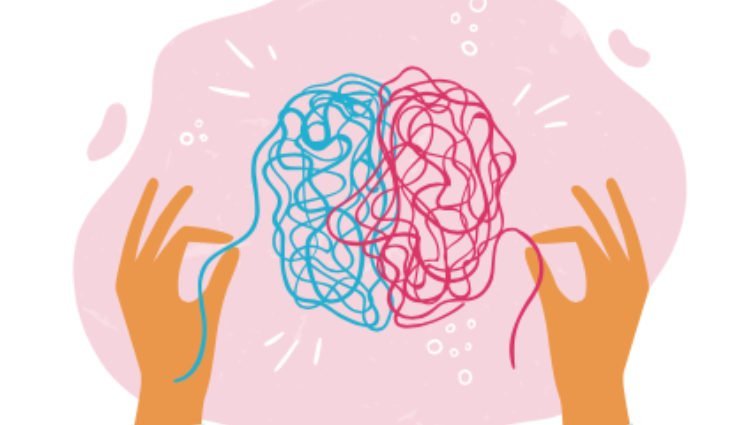Dr. Abhilekh Das, M.D.
Consultant Psychiatrist and Deaddiction Specialist
The Corona Pandemic is pushing the entire world into a mental health crisis. During any outbreak of an infectious disease, it is the psychological reactions of the common man that play the most critical role in shaping the spread of the disease as well as the occurrence of emotional distress and psychiatric disorders during and after the outbreak. Psychological reactions to pandemic include mal-adaptive behaviors, emotional distress and defensive responses.
PSYCHIATRIC DISORDERS / ISSUES DURING COVID-19 PANDEMIC
- SCHIZOPHRENIA
Covid-19 infection itself may exacerbate symptoms in people with schizophrenia as corona viruses may induce psychotic symptoms through an immune related mechanism. Social distancing measures adopted by the Government to prevent the community transmission of the virus can have a negative impact on the patients of schizophrenia as it will reduce their casual contacts and thereby further cut down their already limited social network. Lock down measures may prevent the patient from getting his medicines on time leading to relapse of symptoms. Social isolation may increase the chances of suicide whereas the stress associated with the pandemic may lead to aggressive behavior in such patients.
- DEPRESSION
This silent killer is getting stronger and more menacing as the Covid-19 pandemic lingers on. Economic hardships, physical isolation from family and friends, an uncertain future, excessive indulgence in alcohol, demise of family members due to covid-19 infection and a feeling of helplessness and hopelessness that is engulfing the consciousness of the majority due to unavailability of a proper vaccine and adequate treatment are some of the major factors that might precipitate depression and even lead to suicide. Add to that, one out of every five frontline healthcare workers are experiencing depressive symptoms and insomnia due to extreme burn out, limited resources at work, loss of family support and infections of colleagues and friends/family members.
- ANXIETY AND OBSESSIVE-COMPULSIVE DISORDER
Uncertainty about the future, fear of contracting the virus, self-confinement, absence of proper treatment for the infection and repeated exposure to negative news about the pandemic on media and the social network can lead to anxiety disorders like Generalized Anxiety Disorder and Panic Disorder. Those who are already suffering from pre-existing anxiety are more vulnerable during such a situation. Likewise, people who suffer from obsession of contamination or dirt and compulsively keep on washing hands, may have such behaviour reinforced due to the norms of repeated washing of hands with sanitizer and the fear of contracting the infection. Another issue is the unnecessary and excessive hoarding of essential commodities that can cause difficulties for the economically weaker sections of the society. Reassurance and intervention from mental health experts can help patients cope with such anxieties.
- STIGMATIZATION AND MEDICAL MISTRUST
Stigmatization and scapegoating of health workers, affected patients and authority figures has been a common occurrence during this pandemic. Mental health experts will need to act as unbiased voices of reason to educate the masses in order to reduce their fear and stigmatization towards frontline health workers and patients of Covid-19. Medical mistrust has led to less usage of health care resources and less adherence to health recommendations. False belief in myths and superstitions, may lead to anti-vaccination trends in the future.
Initial public response to any pandemic is of extreme fear and uncertainty which may lead to sleep disturbances, aggressive behaviour, frustration and hysteria. This Pandemic has been no different. Covid-19 survivors who have witnessed death from very close range and frontline health workers working in quarantine centers and covid-19 units are more at risk of developing Post-traumatic stress disorder in the coming days, if their mental health is not cared for.
LOOKING AFTER YOUR MENTAL HEALTH
Pandemics are always scary and take a toll on our mental health. It has alarming implications for individual and collective health and emotional as well as social functioning. While it is important to stay informed, there are a few things we can do to support and manage our emotional well being during such a global crisis.
- Stay emotionally connected with your friends and family by telephone, social media or e-mail.
- Avoid rumors and speculations. Having access to authentic and good quality information can help us feel more in control.
- Try to anticipate distress and keep yourself mentally prepared for any kind of situation.
- Never make assumptions and do not blame anyone for the spread of the virus.
- Limit your exposure to media if it’s affecting you.
- Create a daily routine and prioritize looking after yourself. Engage in relaxing activities and view this time as a unique experience that might have its benefits.
- Take help of a Mental Health Expert if you feel so. Do not hesitate.
This article about Mental Health during Covid-19 was written by Dr. Abhilekh Das, M.D. ,Consultant Psychiatrist and Deaddiction Specialist for Discover East.
Also read about the Safety Measures to be maintained during the pandemic by Dr Arnab Kalita in Discover East.
(Feature image source: Travel Trade Gazette)





